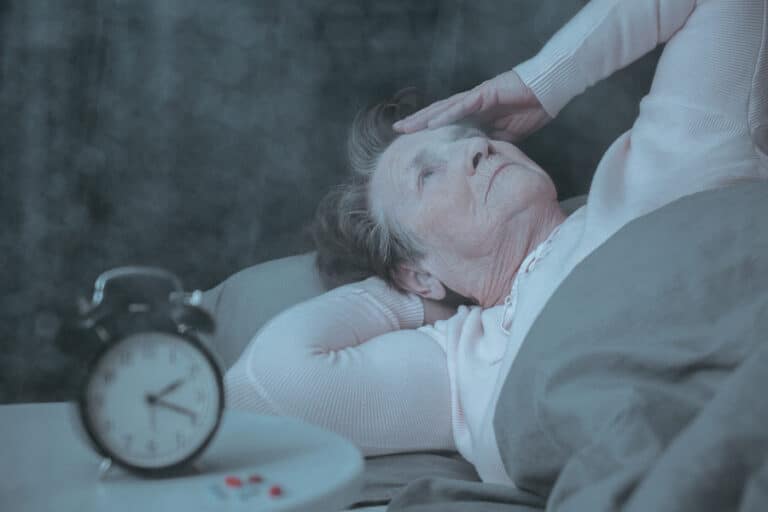Insomnia is a common sleep problem that makes it hard to fall asleep, stay asleep, or get a good night’s rest. People with insomnia often have trouble keeping a regular sleep schedule, making them feel tired, irritable, and unable to do things during the day. This condition can be brought on by several things, such as stress, worry, depression, medical conditions, bad habits, and not getting enough sleep. Insomnia can significantly affect a person’s general quality of life by changing their mood, ability to think, and physical health. Insomnia is usually treated with behavioral changes, changes in living, and, in some cases, medications. These things are meant to improve sleep hygiene and encourage better sleep habits.
Seniors often have trouble sleeping, which can greatly affect their quality of life. There are many things that can lead to insomnia, such as changes in sleep habits, chronic pain, stress, and the side effects of medications. Seniors can get rid of insomnia and improve their overall health with the right help and tools from home care and their loved ones. Consider the following ways to help seniors who have trouble sleeping.
Consistency Is Key
Setting up a regular sleep routine is one of the best ways to deal with insomnia. Seniors should be encouraged to go to bed and wake up at the same time every day, even on the weekends. This can help them get back on track with their sleep-wake routine and sleep better. Other tips are listed below.
Encourage a calm routine before bedtime: Encourage seniors to make a bedtime habit that helps them relax and get ready for sleep. This can mean doing things like taking a warm bath, reading a book, or listening to music that makes you feel calm. They should avoid doing things like watching TV or using electronics right before bed.
Ensure seniors have a comfortable place to sleep: Seniors can also get better sleep by making their bedrooms more cozy. The home care team can ensure they use soft bedding and pillows and keep their bedrooms cool, dark, and quiet. Also, if possible, seniors should use their bedrooms mostly for sleeping, not for watching TV or reading.
Steer clear of stimulants: Caffeine and nicotine can make it hard for seniors to sleep, so avoiding using these substances, especially in the evening, is critical.
Help them manage long-term pain: Seniors often have trouble sleeping because of long-term pain. Encourage them to work with their doctor to find the best way to deal with their pain. This could mean taking medicine, going to physical therapy, or doing something else.
Help them take care of their mental health: Depression, worry, and other problems with mental health can also make it hard to sleep. If a senior is having trouble with their mental health, encourage them to get professional help, like counseling or therapy. Also, the home care team can suggest exercises like yoga or tai chi to help them rest and feel less stressed.
Helping seniors deal with insomnia requires a well-rounded team effort from the home care team and loved ones. With the right tools and help, seniors can learn to sleep well and wake up feeling refreshed. This will help them make the most of their golden years.
If you or an aging loved one need home care in Sacramento, CA, contact A Better living Home Care today (916) 514-7006
Source 1 / Source 2 / Source 3
- Six Steps to Lower High Blood Pressure - July 24, 2024
- Exploring Seniors’ Options Regarding Prescriptions - July 17, 2024
- Understanding the First Stage of Alzheimer’s - July 10, 2024


